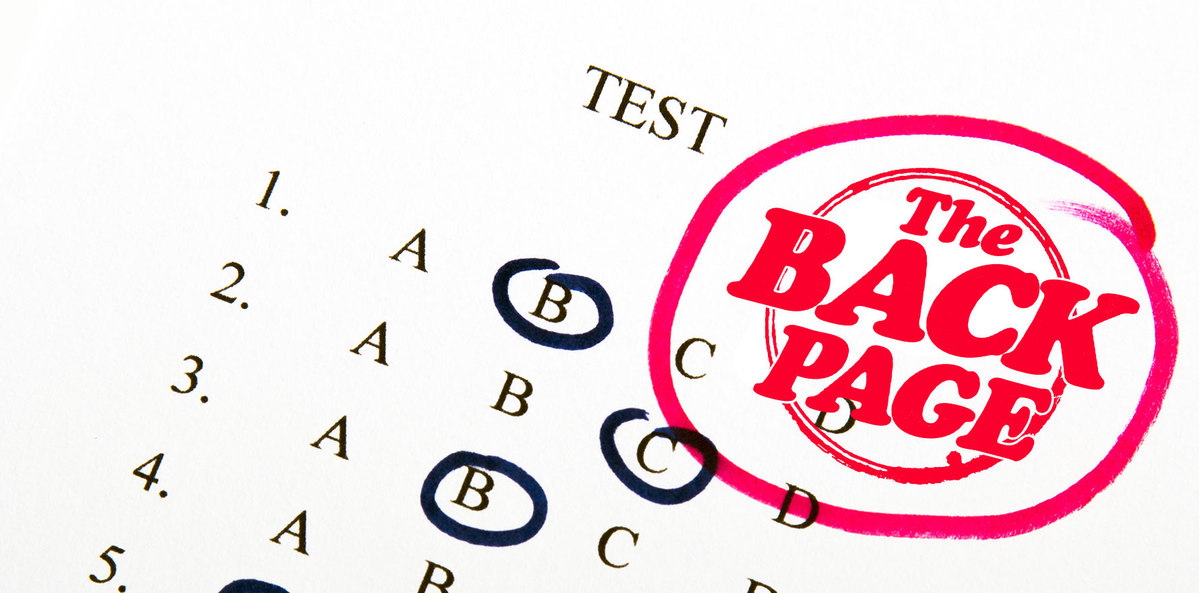Failure is not the great teacher we think it is.
“Try again. Fail again. Fail better.”
This from Samuel Beckett is the Back Page’s favourite quotation about failure, but there’s one for (and from) everyone.
From Confucius: “Our greatest glory is not in never failing, but in rising every time we fail” … to Oprah: “Failure is another stepping stone to greatness.”
From Bill Gates: “It’s fine to celebrate success but it is more important to heed the lessons of failure” … to Michael Jordan: “I’ve failed over and over and over again in my life. And that is why I succeed.”
And from Fred Hoyle: “It is the true nature of mankind to learn from mistakes, not from example” … to Barack Obama: “You can’t let your failures define you. You have to let your failures teach you.”
(Yes, these are all from the same inspirational blog post for sales reps. We’re on the clock here.)
So, what if we told you that humans are, in fact, completely hopeless at learning from our mistakes and that we overestimate others’ ability to do so?
Well, you might revise your opinions about spending on social programs, if this study in the Journal of Experimental Psychology is anything to go by. As its authors say: “Citizens who overestimate postfailure success may under-resource policies and programs designed to help struggling individuals learn and grow from past mistakes.”
These researchers anticipated that test subjects would overestimate how likely people were to correct their mistakes and succeed after having failed in one of various ways.
Examples of this kind of success included passing an exam on a subsequent try, fixing one’s lifestyle to improve one’s health and seeking treatment for addiction.
They further hypothesised that the mechanism for such overestimates is not optimism bias, which is as simple as it sounds, but an “attention to failure gap”. This is where the outsider assumes the person experiencing failure will take careful note of its lessons and throw themselves into finding a fix, when research has in fact shown that we resist taking in information that threatens our egos – we avoid it in psychological self-defence.
As the authors put it, “People who fail tune out when the goal to preserve one’s sense of self over-rides the goal to learn from the experience.”
They carried out 11 studies, which we won’t describe in detail. In a field study among medical professionals, they found nurses overestimated how much their colleagues would succeed following a profession-related failure, i.e. flubbing a medical question wrong.
The other 10 studies, using online samples of lay people, showed that:
- predictors (i.e. people asked to predict) overestimated how often someone who had failed an exam would then pass it;
- predictors overestimated rates of success after failure, but did not overestimate rates of success after success;
- withholding information about a prior failure made predictors more accurate;
- overestimates were due to the mistake belief that people pay more attention to their own failures than they actually do;
- predictors were less likely to overestimate a heart patient’s likelihood of making beneficial lifestyle changes when this mistaken belief is dampened;
- predictors overestimated by 100% how many drug overdose survivors would seek drug treatment; and
- people were more likely to support taxpayer funds being spent on drug rehabilitation programs and prison reforms after learning the true rates of relapse and recidivism.
On that last finding, the authors comment: “It is remarkable that in the United States, one of the most punitive societies on the planet, merely sharing the sobering rate at which ex-convicts and people with addiction make positive life changes motivated participants to shift taxpayer dollars toward rehabilitative reform …
“These results have implications for how we treat professional failures, repeat offenders, people with addiction, and anyone else – which is to say, everyone else – who struggles to learn from failure.”
So the question becomes: can we learn from our failure to appreciate that we don’t learn from our failures? That would be a kind of success.
Send tales of your best mistakes to penny@medicalrepublic.com.au.


